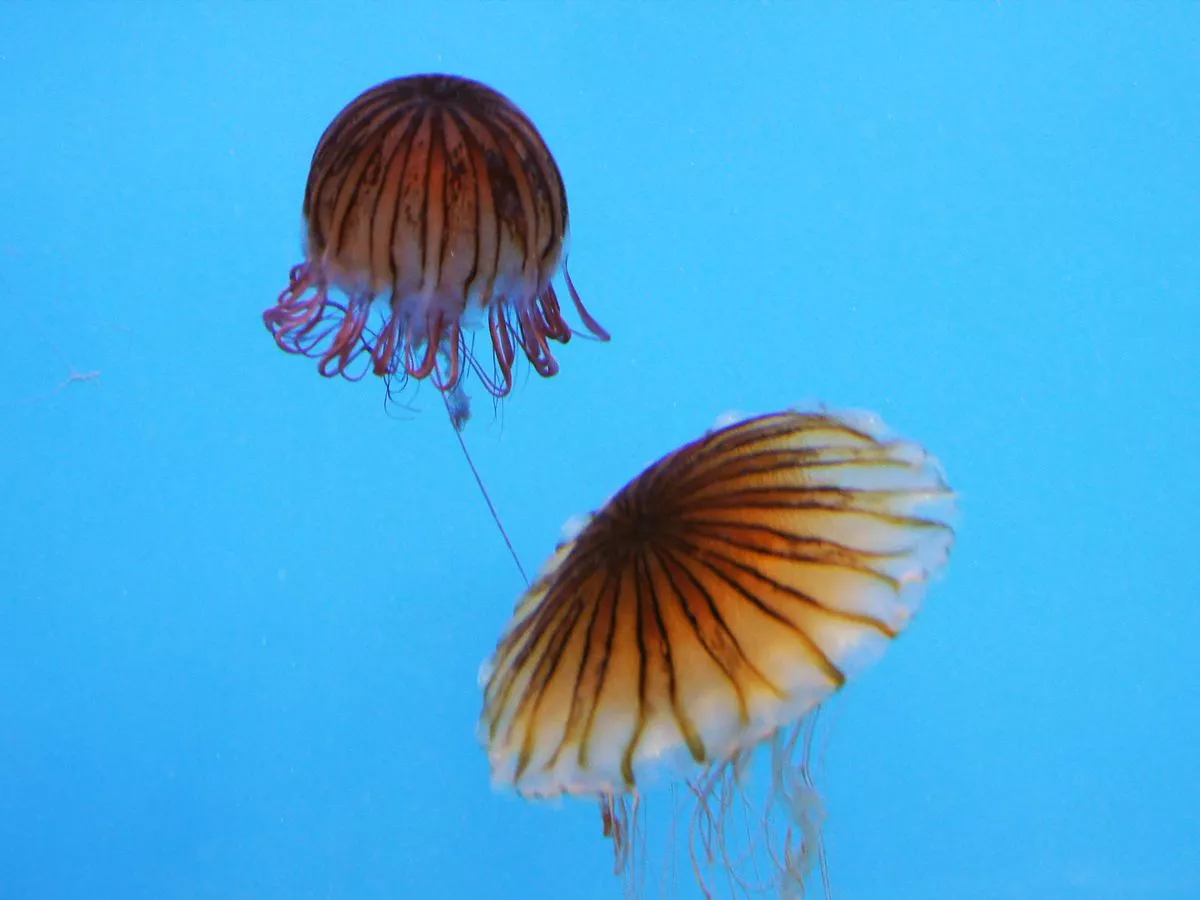By Carrington Walker Neil Shaw
Thousands of stinging jellyfish have began to invade UK waters following the scorching start to summer, with swarms spotted at the base of cliffs near a popular seaside beauty spot . Compass and moon jellyfish have been seen in the sea off Brixham , with both species capable of delivering stings – the compass variety being particularly painful. Compass jellyfish are recognisable by their distinctive brown markings resembling a compass, and while not as dangerous as some species, their sting can be excruciating and cause welts, rashes, and swelling lasting hours, days or even weeks . They are typically found in Mediterranean and Atlantic waters. Moon jellyfish are more common in British seas and deliver only a mild sting that poses no threat to humans. Tristan Northway, skipper of the Four Reasons charter boat, in Devon, blamed the recent warm weather for triggering the bloom after spotting them off Brixham. “There are thousands of them,” he said. “And depending what direction the wind is, they will gather in places. “There are all sorts of jellies including compass, comb jellyfish, which are really cool, and moon jellyfish. Because the water is warmer now we are seeing a lot more of them. They only live for six to 12 months.” This could be just the beginning of jellyfish swarms as temperatures continue to soar. The UK experienced its hottest day of the year on Tuesday (July 1), with temperatures surging to 35 degrees, and blistering conditions could persist throughout the month. Compass jellyfish, recognised by their unique V-shaped markings, can deliver a painful sting, warns the Devon Wildlife Trust. Although not as hazardous as some other jellyfish species, it’s best to steer clear of their stings as they can cause discomfort. If you do get stung, use tweezers or a credit card to remove any tentacles, then rinse the area with seawater followed by warm water. Seek medical help if symptoms escalate. Despite what you might have heard in an episode of US sitcom Friends, urinating on a jellyfish sting actually won’t make it better – in fact, it could make it worse. According to Grazia , a study found this will actually irritate the sting further and spread the venom.
